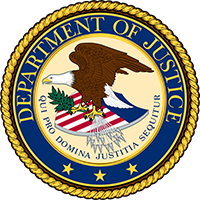Equal Access to Child Care
Currently, children with disabilities are thriving alongside their nondisabled peers in childcare centers across the country that foster inclusion. A child with a disability must never be turned away from a child care center based on assumptions about the severity of the disability or how much assistance they may need. Inclusive programs fulfill the ADA’s promise to ensure equal access to child care programs for all children. The information below is intended to help ensure that your child care program fulfills this promise, too.
Topic
Read this to get a basic understanding of this topic.
- For more detailed information on a topic, view Guidance & Resource materials
- For information about the legal requirements, visit Law, Regulations & Standards
About Child Care Centers
Child care centers that must comply with the ADA include:
They do not include:
Basic obligations
Child care providers must:
What do we mean by individualized assessment under the ADA?
The question of whether a child care center can meet a child’s needs must not be based on negative feelings or assumptions about children with disabilities. This is why blanket policies that exclude children with certain types of disabilities are unlawful. Parents or guardians can be valuable resources to help child care centers meet the individualized needs of their children.
- Change a toilet training policy to assist a child with Down syndrome who, due to her disability, requires assistance with going to the bathroom.
- Change a discipline policy to ensure that a child with autism has equal access to the program with appropriate supports, such as training staff to aid the child in deescalating behavior when the child acts out.
- Change a medication policy so that a trained staff person may assist a child with diabetes in the administration of insulin or Glucagon, an emergency, life-saving medication for individuals with diabetes.
- If a child care center is closing early due to bad weather, that may mean using different methods—not just calls but emails or text messages—to communicate with deaf or hard of hearing parents or guardians.
- If a child care center is using websites or parent portals to keep parents informed concerning their child’s participation in the program, all such technology must be accessible to those with hearing, vision, or speech disabilities (for example, those who use screen readers).
For example, installing grab bars in toilet stalls or replacing playground pea gravel with ADA-compliant materials.
Child care providers must not:
Example:
- A child care center cannot turn away or isolate a child because the child has intellectual disabilities.
- The center must instead take steps to integrate that child into every activity available to other children, including participation in extra-curricular activities and field trips.
More about direct threat
Whether a child poses a direct threat, meaning a substantial risk of serious harm to the health and safety of others, may not be based on generalizations or stereotypes about the effects of a particular disability. A child care center must make an individualized assessment, based on reasonable judgment that relies on current medical knowledge or on the best available objective evidence to determine the nature, duration, and severity of the risk; the probability that potential injury will occur; and whether reasonable modifications of policies, practices, or procedures or the provision of aids or services will address the risk.
Before excluding any child with a disability based on behavioral concerns, care providers must consider reasonable modifications to address behavioral issues. They must not assume a child can be excluded for disability-related behavior.
More about fundamental alteration
In general, the question of whether a requested modification results in a fundamental alteration of the program may be answered by whether the policies, practices or procedures at issue are essential to the provision of childcare services. If they are, the requested change may amount to a fundamental alteration.
For example, if a parent requests that a childcare provider modify its hours of operation for aftercare to begin at 4:30 p.m. instead of 3:00 p.m. to accommodate a child’s disability-related daily medical appointments, such a change would fundamentally alter the nature of the program. On the other hand, it might be a closer question whether a child care center would be required to modify is toileting assistance policy to accommodate a child who needs assistance with toileting. But remember, even if the center never provides toileting assistance to nondisabled students, the center still must not exclude the child with a disability from its program if alternate arrangements can be made.
Learn More About the ADA and Child Care Programs


